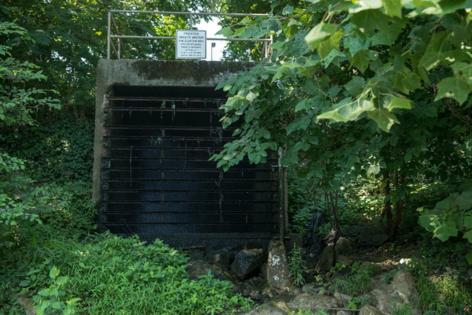Atlanta faces new lawsuit over sewage releases into Chattahoochee River
Published in News & Features
ATLANTA – The city of Atlanta is facing a new federal lawsuit over claims the city’s wastewater treatment plants have repeatedly released poorly treated sewage into the waterway containing dangerous levels of bacteria and other pollutants.
The suit was filed Friday in an Atlanta federal court on behalf of the Chattahoochee Riverkeeper, just over two months after the group told the city it would sue if it did not stop sending pollution into the river. The Riverkeeper is represented in the case by the Southern Environmental Law Center.
The complaint focuses on the R.M. Clayton Water Reclamation Center in northwest Atlanta, the city’s largest sewage treatment plant. R.M. Clayton is permitted to release as much as 100 million gallons of treated wastewater every day into the Chattahoochee.
The facility’s permits restrict the amount of E. coli, ammonia, phosphorus and more that can be left in the wastewater when it is discharged into the river. The lawsuit claims R.M Clayton exceeded its allowed pollution limits at least 79 times from July 2023 to July this year, violating the federal Clean Water Act and its state permit.
For other pollutants, the city has metrics it must meet from its three wastewater plants combined: R.M. Clayton, plus the Utoy Creek and South River facilities. The lawsuit says the city has breached those limits, too, at least 62 times since January 2023.
The Riverkeeper is seeking a court order to halt the violations it says are ongoing, and hold Atlanta liable for civil penalties, attorneys fees and other costs.
Neither Mayor Andre Dickens’ office nor the city’s Department of Watershed Management immediately responded to a request for comment on the lawsuit.
In the late 20th century, Atlanta’s rapidly growing population — combined with its crude and undersized wastewater system — led to frequent spills that regularly fouled the Chattahoochee with raw sewage. Starting in the late ’90s, lawsuits and federal consent decrees forced the city to address the pollution. The result was that the Chattahoochee’s water quality had improved dramatically in recent decades.
But the Riverkeeper claims operational and maintenance breakdowns over the last year and a half have put those strides at risk.
“The city of Atlanta knows that the R.M. Clayton facility is failing and poses a serious threat to the health of the Chattahoochee River and all the people and wildlife who depend on it,” Jason Ulseth, the Riverkeeper’s executive director, said in a statement.
In March, the Riverkeeper notified the city and the Georgia Environmental Protection Division that potentially dangerous levels of E. coli and other pollutants were entering the river from R.M. Clayton.
Soon after, EPD investigators made an unannounced visit to the plant that was commemorated in an inspection report which found many of the facility’s filtration systems in disrepair and water channels caked in “solids.” The city was later cited by EPD for dozens of violations and was fined $163,000 in May by EPD for a separate set of 106 sewage spills that have occurred over the last two years.
Last month, before the lawsuit was filed, Peter Aman, Atlanta’s chief strategy officer, told The Atlanta Journal-Constitution the city has fixed most of the problems at R.M. Clayton outlined in the EPD inspection report and is “fiercely committed to the health of the Chattahoochee River.”
“This is of the utmost importance to us and we take any anything that impacts the health and, frankly, safety of the river incredibly seriously,” Aman said.
On top of the wastewater woes, a series of water main breaks in late May and early June also left large portions of the city without drinking water for days, costing businesses and residents millions of dollars. Dickens has said the city will seek federal help to address aging drinking water pipes. Those fixes could cost billions.
This summer, Atlanta City Council created a $7.5 million relief fund to help businesses that were harmed by the water outage.
©2024 The Atlanta Journal-Constitution. Visit at ajc.com. Distributed by Tribune Content Agency, LLC.










Comments